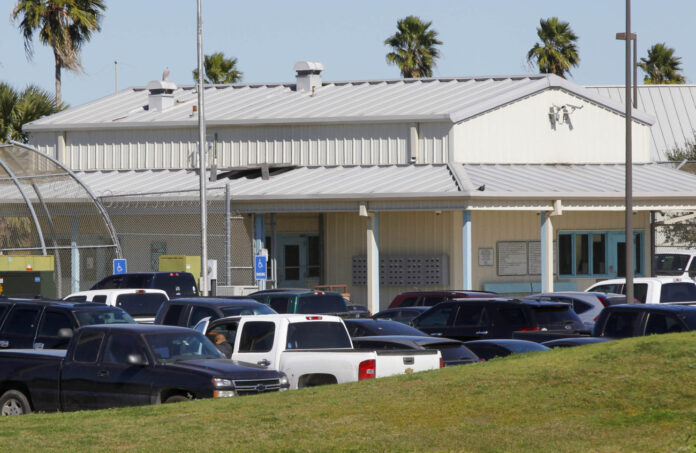
|
Only have a minute? Listen instead
Getting your Trinity Audio player ready...
|
The Department of Justice on Thursday announced that an investigation has revealed multiple violations of the U.S. Constitution at the Texas Juvenile Justice Department, or TJJD.
That report said that TJJD also violated the Individuals with Disabilities Education Act and the Americans with Disabilities Act.
The DOJ uncovered the violations at all of TJJD’s facilities, including the Evins Regional Juvenile Center in Edinburg, which is mentioned more than 20 times in the 73-page report.
The agency initiated the investigation in October 2021.
Kristen Clarke, assistant attorney general of the Justice Department’s Civil Rights Division, said in a news release that the investigation showed TJJD engaged in a pattern of abuse while depriving children of essential services and discriminating against those with disabilities, seriously harming children and undermining their rehabilitation.
“State officials have an obligation to keep these children safe, to teach them, to provide them necessary health services and to treat them fairly, without discrimination,” Clarke said.
The DOJ found that TJJD exposed children to excessive force and prolonged isolation; failed to protect children from sexual abuse; and failed to provide mental health services.
The agency also said TJJD failed to provide special education and related services to children with disabilities and discriminated against them by not providing reasonable modifications for their participation in programs for their release while denying them an equal opportunity to benefit from education.
“These violations of the Constitution and federal law place children at substantial risk of serious physical and psychological harm and impede successful outcomes for children,” the release stated.
For its part, the TJJD said in a statement that it worked closely with DOJ investigators during site visits in 2022, which happened during the pandemic at “the peak of the agency’s unprecedented staffing shortages.”
In December 2021, The Monitor reported that the Texas Military Department was assisting TJJD at the Evins Regional Juvenile Center with staffing due to the shortages.
“At TJJD we are continually working to improve our operations and services to the youth in our care and the communities of Texas we protect,” the TJJD statement read. “We have a zero-tolerance policy toward abuse and neglect and have always fully rejected any abusive behaviors at our campuses.”
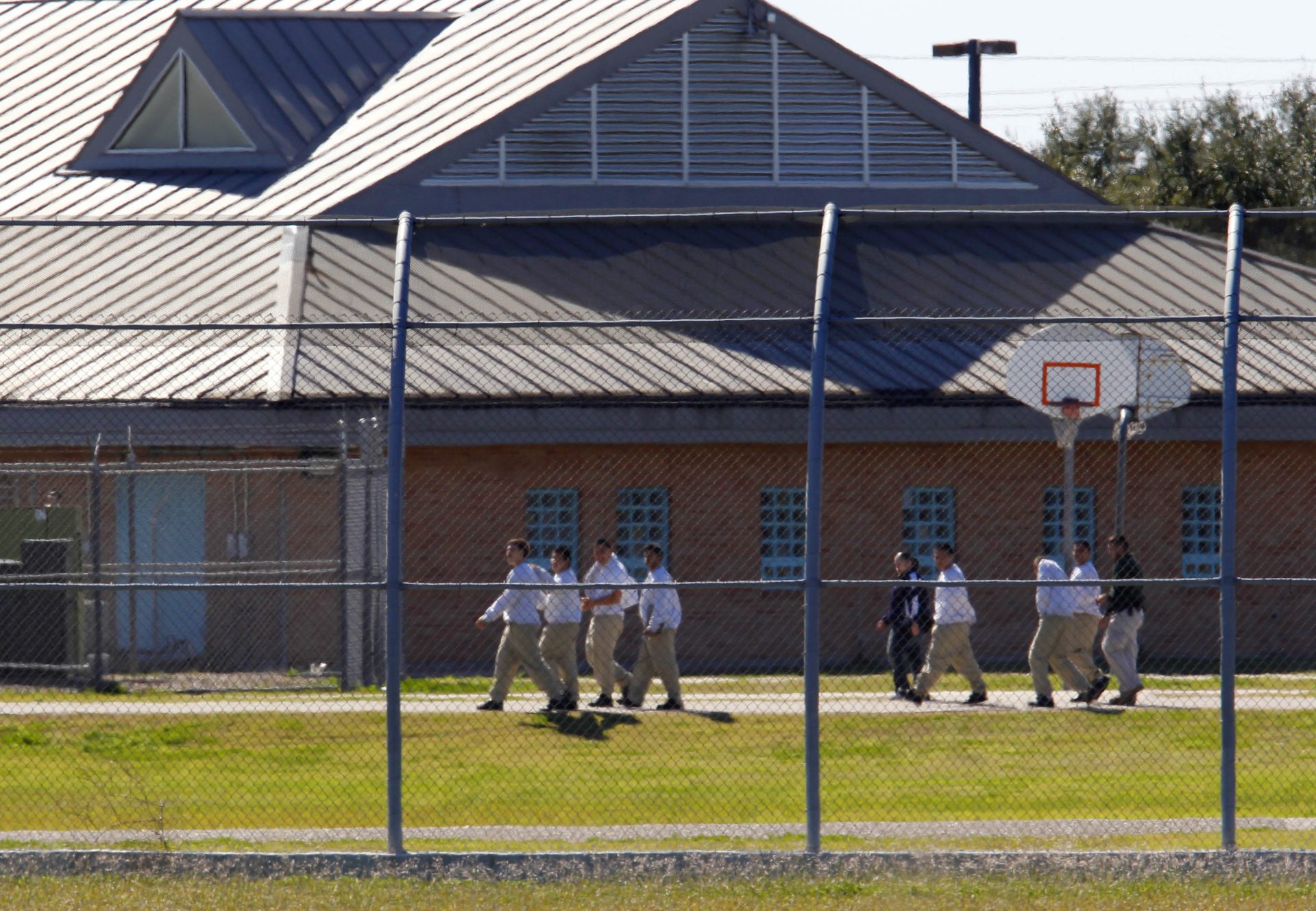
The statement said that over the last two years TJJD has increased staff salaries, enabling the agency to increase staffing by about 30%.
It says it has hired more mental health professionals and enhanced stabilization units to provide more intense supervision and care for youth with high mental health needs.
TJJD said it’s already put in place a plan that is reducing disruptions and self-harm incidents while strengthening support for struggling youth and those with behavior or academic needs.
The agency also said it has improved training for all staff.
Alamdar S. Hamdani, U.S. Attorney for the Southern District of Texas, said the conditions were unacceptable and noted that TJJD has been investigated since the early 2000s.
The Evins Regional Juvenile Center was first investigated in 2007, an investigation that found that the Edinburg facility failed to keep children safe.
“Working with Texas’s other U.S. Attorneys’ Offices, the Civil Rights Division and the State of Texas, my office hopes to provide protections to the vulnerable and help right the wrongs that have existed for far too long,” Hamdani said in a statement.
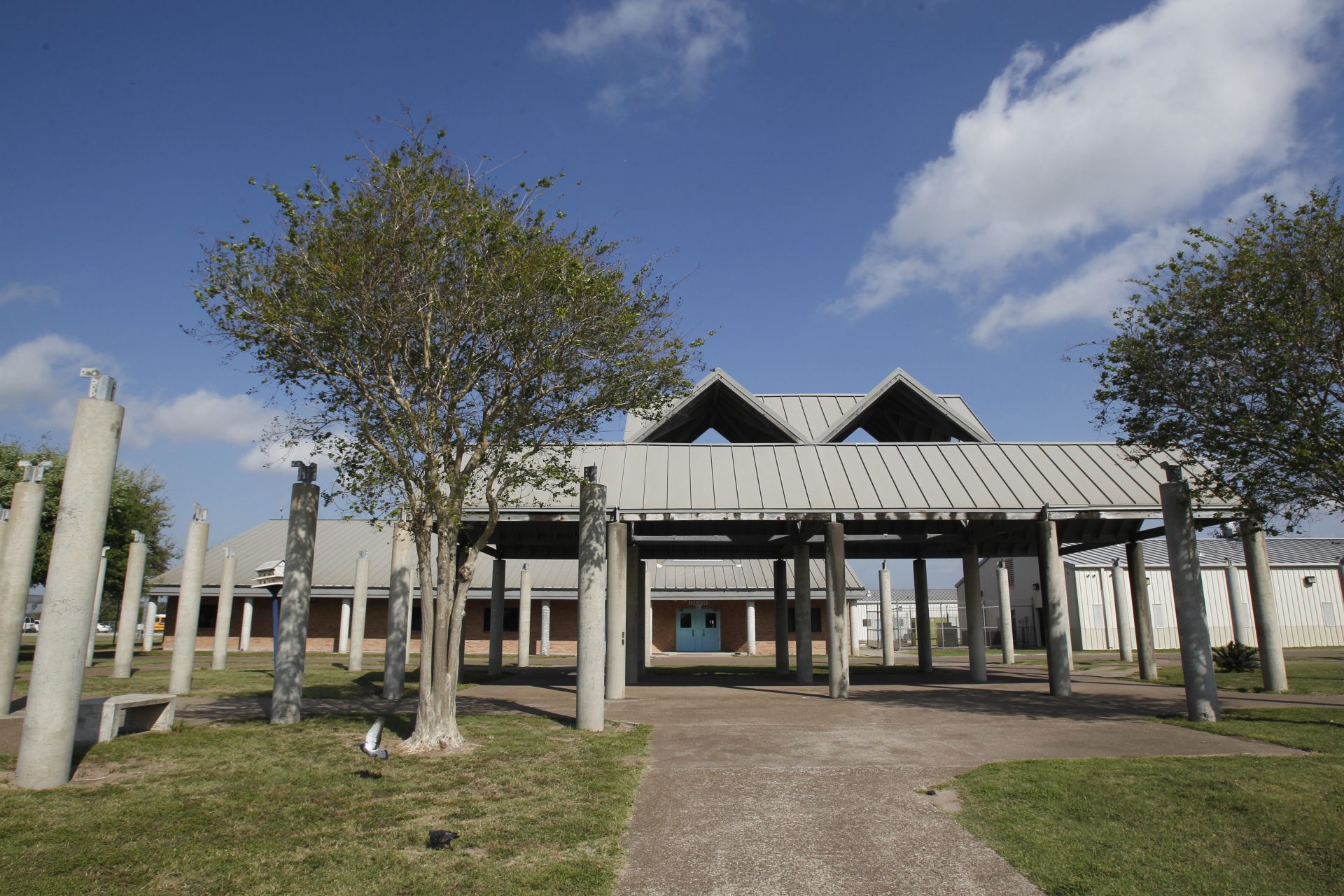
SEX ABUSE AND VIOLENCE
The DOJ detailed numerous incidents of violence and sexual abuse that have occurred at the Evins Juvenile Justice Center that have violated the Constitution.
The report said that in June 2022, two staff members there were charged after surveillance and body-worn camera video showed one of them slamming a child’s head into a brick pillar, knocking him unconscious.
“The boy allegedly was handcuffed with his hands and arms behind his back throughout this ordeal,” the DOJ report stated. “One of the staff members then reportedly turned off his body camera, after which one of the staff members allegedly spat on the unconscious boy before dragging him to the RSU, causing additional injuries to the child.”
RSU stands for Regulation & Safety Unit.

One of those staff members is Luis Alexander Jesus, 36, who in May 2024 pleaded guilty to official oppression in a deal with Hidalgo County prosecutors.
He was sentenced to two years probation, court records show.
The DOJ also reported sexual abuse at the Edinburg facility, including an October 2022 “inappropriate relationship.”
“The Office of Inspector General found that the staff had mailed the child inappropriate letters and engaged in inappropriate phone calls with the child,” the report stated. “The staff also mailed the child about fifty pictures of herself, two of which were nude pictures. Both the staff and the child had tattooed each other’s names on their wrists.”
The report also notes a July 2021 instance of indecency with a child and improper sexual activity with a person in custody.
“According to its report, the staff (member) was found by a coworker in the unit shower area performing oral sex on a child,” the report stated. “The staff turned their body-worn camera off just before the incident.”

At the time, TJJD reported that it arrested Todd Hanks, now 53, who had been with the agency since 2005. He was a youth development coach.
Hanks was indicted in April.
However, while it’s not mentioned in the DOJ report, TJJD fired a correctional officer at Evins Regional Juvenile Center in June for sexual abuse of a children.
Gerardo Puente, 27, is charged with two counts of indecency with a child by exposure and one count of indecency with a child by contact.
“While working as a (correctional officer) at the Evins Regional Juvenile Center, Puente is alleged to have reached over and touched the genitals of the victim,” the release stated. “Additionally, (in) two separate incidents, the victim exposed their genitals to Puente at Puente’s request.”
The incidents happened in May and June, according to TJJD.

ISOLATION AND NEGLECT
The DOJ investigation also found that children at the Evins Regional Juvenile Justice Center were isolated for long periods of time and that their needs were routinely neglected.
“At Evins, where staff and children referred to the practice as ‘racking up,’ we observed children in one unit locked down for the night at 4:39 p.m.,” the report stated.
The report references a December 2022 incident there at about 4:45 p.m. where a child “refused to rack up for the day, instead running into the dorm’s shower area.”
“A staff member followed him, physically pulled him out, and restrained him by pulling his arms behind his back,” the report stated. “Michael was then handcuffed and escorted to his cell by two staff.”
Once in his cell, the staff removed his handcuffs and pushed him to the ground.
“From there, the child covered his head,” the report stated. “While in that position, another staff pepper sprayed him. He was then re-cuffed and taken to the RSU, where he spent several days.”
In another incident in December 2022, a child became upset because he couldn’t make a phone call before being racked up.
“The resulting use of physical force by staff left Anthony with a cut on his chin that required a trip to the infirmary. It was 11:30 a.m. when staff ordered children to rack up,” the report stated.
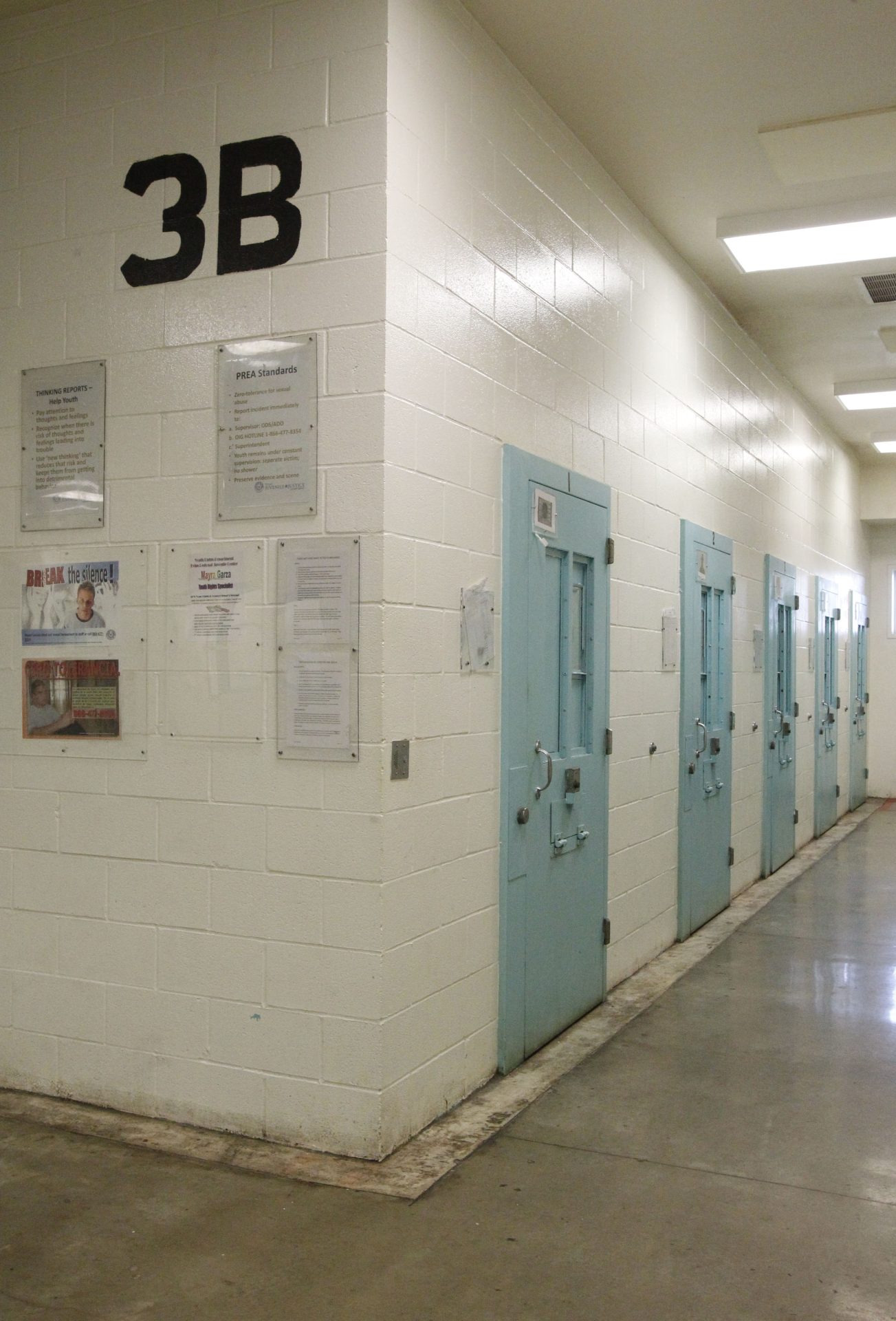
The DOJ also found that staff falsified records at the Edinburg facility.
“Consistent with our observations, TJJD’s Office of Inspector General found that in February 2023, a staff member at Evins falsified records by documenting that he had conducted five-minute cell checks — which are required for children on suicide alert status — when, in fact, he neglected to check on them for nearly an hour.”
This leaves children at serious risk of harm, including death.
“Our conversations with children echoed this concern: ‘If I’m behind a door, I feel like I could kill myself. They don’t check on us there,’” the report said.
Staff at the Edinburg facility also didn’t resolve grievances filed by children, including one in April 2022 where a child said they felt like committing suicide because they didn’t feel safe.
“TJJD responded by placing the child on constant suicide precautions because of his ‘suicidal thoughts due to a peer taking your food.’ After noting that mental health staff would follow up with Jayden, the response stated that the grievance ‘is now considered resolved,’” the report stated.
There is no mention of any follow-up or about resolving the complaint about the child’s food being stolen, the DOJ said.
One child whose mother died by suicide prior to his admission to TJJD needed counseling, which he did not receive for 15 months. When he finally got a counselor, the session lasted 15 minutes. The child and staff expressed concern about his mental health, especially regarding self-harm and violence.
“He then waited another 3.5 months for this third session. When TJJD transferred Alexander to the Violence Intervention Continuum at Evins, TJJD terminated his counseling,” the report stated.
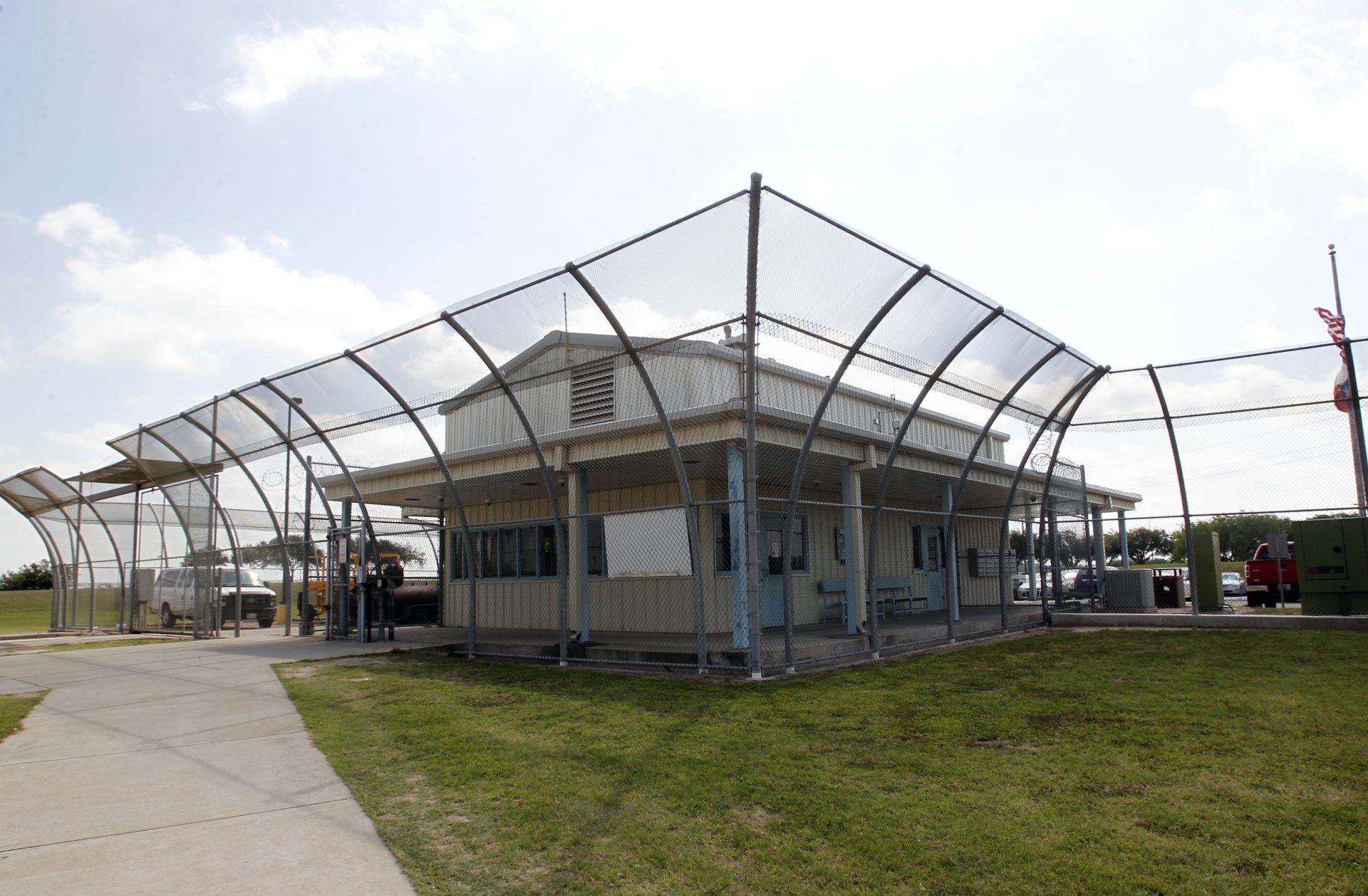
In Edinburg, he became frustrated and acted out.
“Alexander’s mental health struggles, left largely untreated, likely contributed to the behaviors that became the basis for TJJD moving Alexander to the Violence Intervention Continuum,” the report stated.
The DOJ report also found that from June 2021 until June 2023, staff at Evins never conducted required evaluations for children with disabilities.
Some children were also not educated at Evins, according to the report.
“In the Redirect and Phoenix dorms at Evins, children stopped and started work repeatedly, talked to peers and staff, left the classroom (where one existed) or table, wandered around, stood on furniture, banged on doors, performed cartwheels and flips, shadowboxed, and sang,” the report stated. “At any given time, only two of three children completed worksheets.
“We did not observe any teachers or security staff explaining expectations for learning or behavior during this time.”
Phoenix is the most restrictive program at Evins followed by Redirect.



